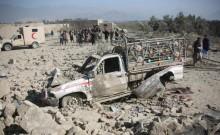The recent spate of killings of militants, security forces and civilians have made 2018, one of the bloodiest years in the history of insurgency in Kashmir.
J&K Police chief, Dilbagh Singh recently said that this year marked the killing of at least 227 militants in the valley, with the highest number of militants killed in November. The J&K police also claimed that the militants who were killed also included some of the top commanders from Hizbul Mujahideen, Lashkar-e-Taiba and other outfits. However, according to official reports, at least 250-270 militants are still active in the Valley.
The numbers negate the assertions from J&K Governor, Satya Pal Malik and other investigative agencies that there have been no new militant recruitments in the Valley since October 2018 and that the number of active militants is dwindling fast.
The Governor told media in Jammu that ever since he took over, no local youths have joined militancy or stone pelting brigade. But the statistics tell a different story.
The security forces had clear-cut directions from the central government to carry out fierce operations in valley especially South Kashmir, which is the hotbed to wipe out the very last militant.
But has the initiative of wiping out militants worked in Valley and especially prevented the new militant recruitment? The answer seems no.
A good number of militants are still active in Valley which most likely includes many locals especially since the infiltration from across the border has decreased dramatically over the years. So why are the local boys joining militancy despite the Indian Army and security agencies hell-bent on wiping them out?

Apart from ideological influence, which is mostly religious in nature, the unabated civilian killings could also trigger the new militant recruitments, experts opine.
A sense of alienation which was already present among the Kashmiri youth is only growing with an increasing number of civilian killings in the valley. An official report said that the civilian killings this year touched 94, either during the protests or at the encounter sites.
"The killing of unarmed civilians is only firing the sentiments among the youth. Imagine in this age of social media, the pictures of young teenagers who get killed in the clashes or a video of a man mowed down by a security forces vehicle is being seen by thousands of youth, which angers them. There is a section among them which feels that a lot of injustice is being done to them and then they want to take on the enemies which for them is the Indian army or J&K police," Saqib Saleem, from Srinagar who studies International Relations in Bengaluru said.
Lately, there have also been incidents of young educated Kashmiris including the likes of Manan Wani who was a PhD scholar or Sabzar, another postgraduate being killed who had joined Hizbul Mujahideen.
The recent case of killings of seven civilians in Pulwama, South Kashmir, which included an MBA degree holder, a class 10 student and a milkmanhas pushed valley to the edge. Kashmir is observing a three day shutdown. An internet shutdown has been ordered by the administration and all major transport services are shut. Besides, such incidents may fuel the local miliant hirings, which both the central and state governments are desperately trying to stop.
Even the mainstream political parties such as National Conference, Peoples Democratic Party and BJP's close ally Sajad lone are detesting the "muscular approach" to deal with the militants, which according to them is leading the Kashmir policy to nowhere.
Today, PDP infact protested at J&K Civil Secretariat in Jammu against these civilian killings. Its President, Mehbooba Mufti even went on to say that India will never win any war by killing its own people.
"But the hard truth is that Mehbooba Jee forgot to issue such staements when she was holding the CMs chair. It was in 2017, when she was sharing the power with BJP that the direcions were given to Army and other forces to search and kill militants in Kashmir," a human rights activist said.
















